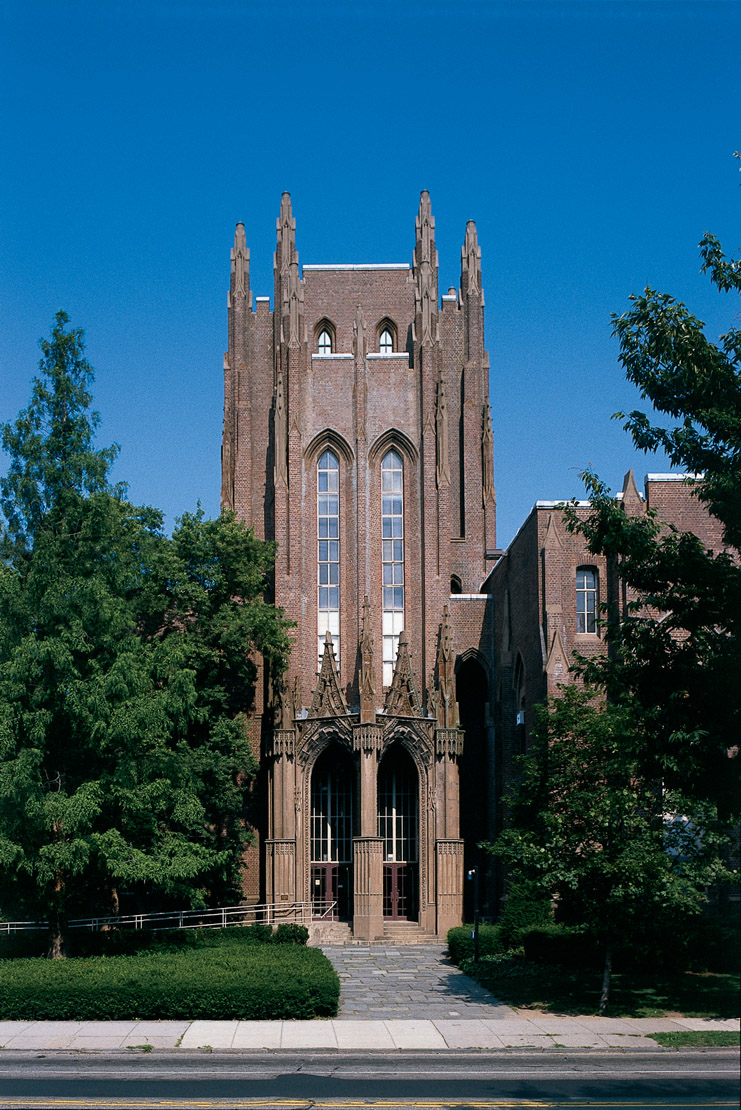 The source materials associated with biodiversity collections often contain the most complete and sometimes most accurate descriptions of localities, collecting events, and even the collection objects themselves of any extant documentation. This archive material, which includes field notebooks, catalogs, ledgers, field-prepared or annotated route maps, field drawings, logbooks, journals, diaries, photographs, tags, slips, and similar items contains extensive information that may not appear on labels attached to or stored with collections objects. Digitizing these materials was the focus of the Digitizing from Source Materials workshop held at Yale Peabody Museum March 10-12, 2014.
The source materials associated with biodiversity collections often contain the most complete and sometimes most accurate descriptions of localities, collecting events, and even the collection objects themselves of any extant documentation. This archive material, which includes field notebooks, catalogs, ledgers, field-prepared or annotated route maps, field drawings, logbooks, journals, diaries, photographs, tags, slips, and similar items contains extensive information that may not appear on labels attached to or stored with collections objects. Digitizing these materials was the focus of the Digitizing from Source Materials workshop held at Yale Peabody Museum March 10-12, 2014.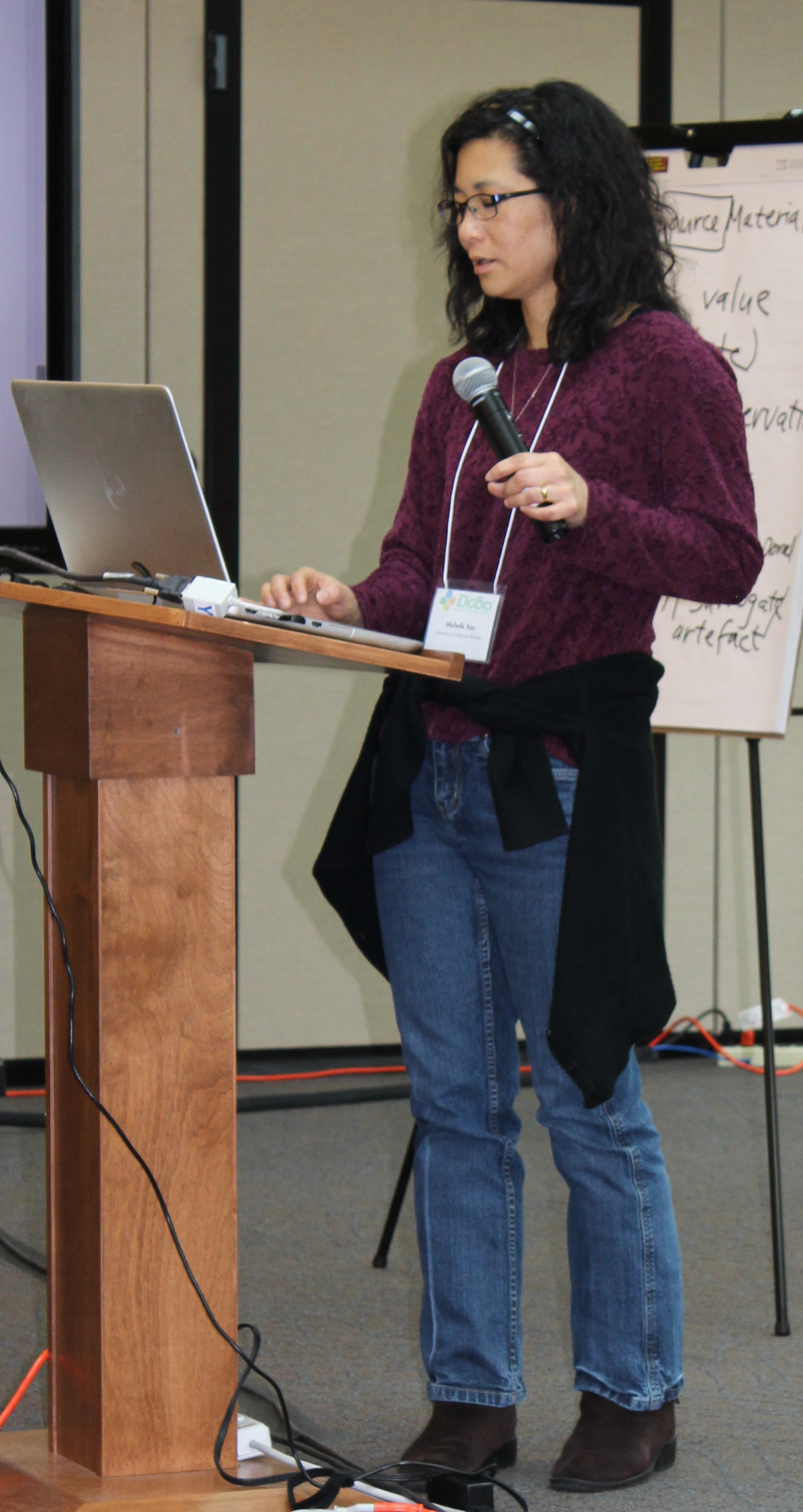
This was an invited, multi-disciplinary, product-oriented workshop with the express purpose of producing publishable best practices for integrating source materials into collections digitization programs. Attendees represented botany, entomology, vertebrate zoology, paleontology, information and library sciences, archivists, biodiversity informatics professionals, and public participation and citizen science specialists, all deeply experienced in working with biodiversity source documentation. The workshop was the result of about two years of ongoing discussion and meetings which eventually led to a summary and proposal crafted by Tim White, director of collections and operations at Yale Peabody Museum, and submitted to the iDigBio Steering Committee.

The workshop was preceded by a community survey designed to determine the prevalence of source material digitization and the types of documents being digitized as well as a method for discovering potential invitees to the workshop. iDigBio evaluator Shari Ellis coded and summarized the results of the survey and planning team members Christina Fidler, Larry Gall, Michelle Koo, James Macklin, Gil Nelson, Deb Paul, Tim White, Rusty Russell, Carolyn Sheffield, and Barbara Thiers combed them for agenda topics and invitees. A second survey—which the planning team referred to as workshop homework—was distributed to attendees to gather information about the types of source materials being digitized by workshop invitees. The associated word cloud produced by Deb Paul helped us visualize the results of the homework assignment.
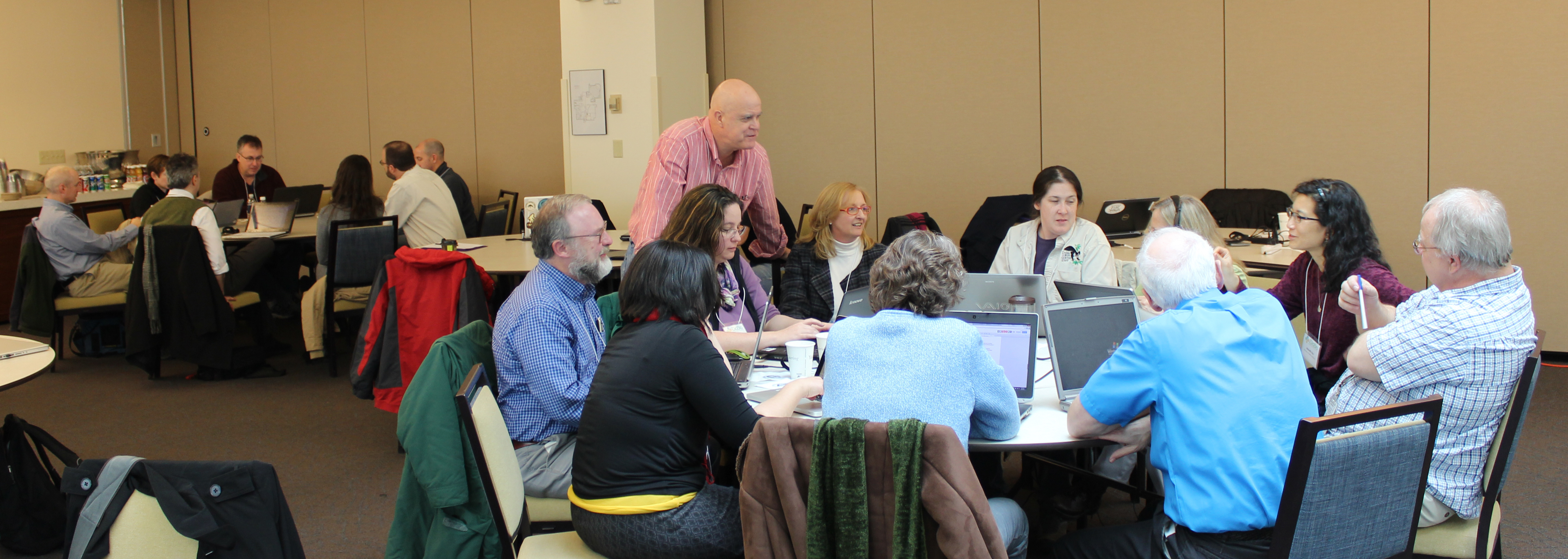 Given the expertise and talent assembled, the agenda focused less on prepared presentations and more on large and small group discussion that allowed participants to tease out issues as scribes recorded content into a developing and now nearly complete annotated outline to guide development of a best practices document. Major foci the first day included developing a shared definition of source materials and underscoring the reasons that digitizing source matrerials is important, followed by extensive large group and breakout session deliberations dlineating workflow commonalities.
Given the expertise and talent assembled, the agenda focused less on prepared presentations and more on large and small group discussion that allowed participants to tease out issues as scribes recorded content into a developing and now nearly complete annotated outline to guide development of a best practices document. Major foci the first day included developing a shared definition of source materials and underscoring the reasons that digitizing source matrerials is important, followed by extensive large group and breakout session deliberations dlineating workflow commonalities.
The first day culminated with a round of collections tours at the Peabody Museum, followed by a reception in the Great Hall of Dinosaurs. Armand Morgan, senior instructor in YPM’s public education program captivated participants with fascinating stories of the development of the Rudolf Zallinger murals that adorn the Great Hall and the Hall of Mammals, following which he led a tour of parts of the museum.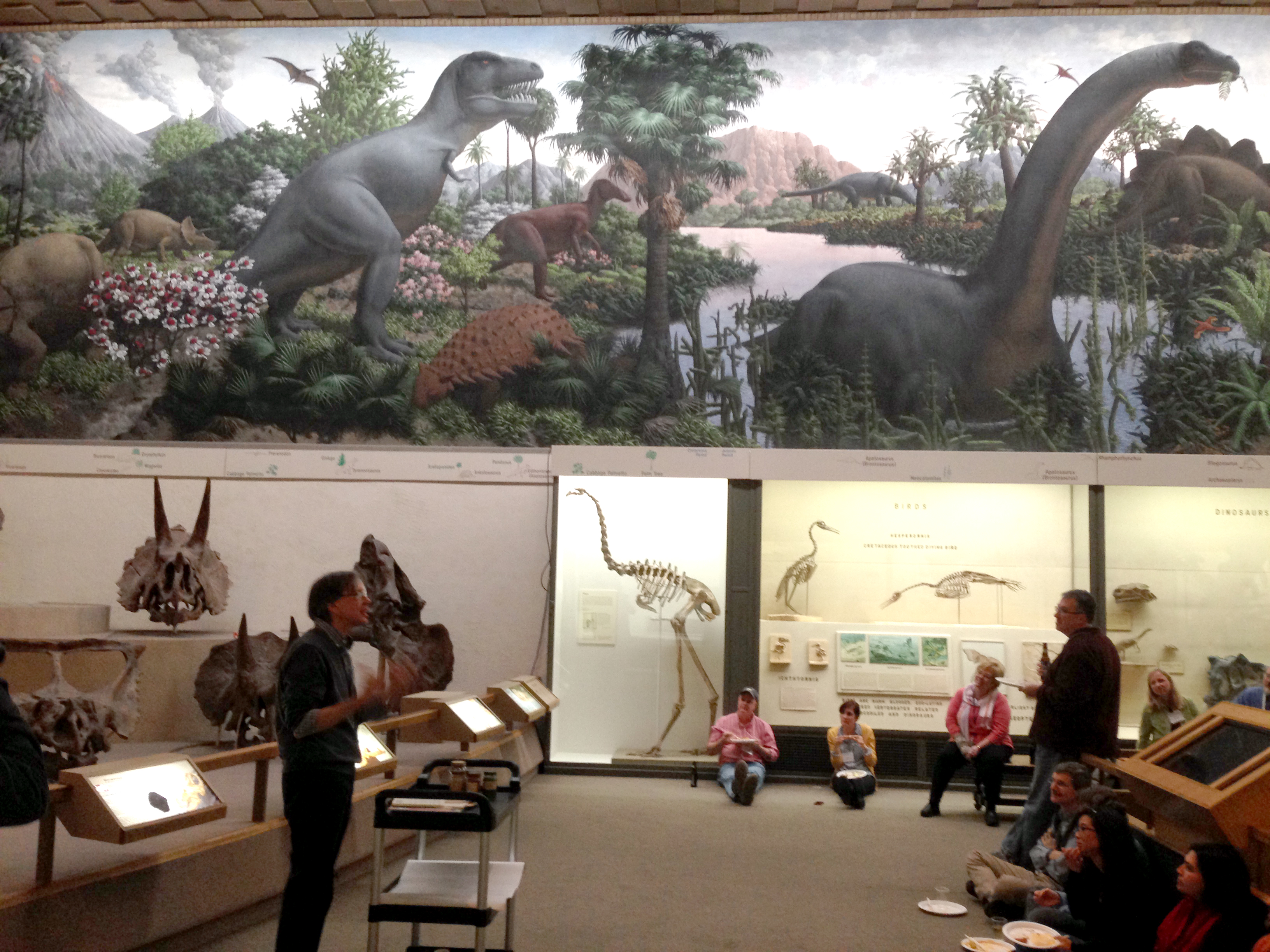
Day 2 continued with fleshing out work flow processes followed by examination of biodiversity, library, and archival standards and strategies for justifying source materials digitization to the collections community and potential funders. Day 3 began with several presentations highlighting the use of crowd-sourcing and public participation tools and how those tools can be co-opted for source materials digitization.
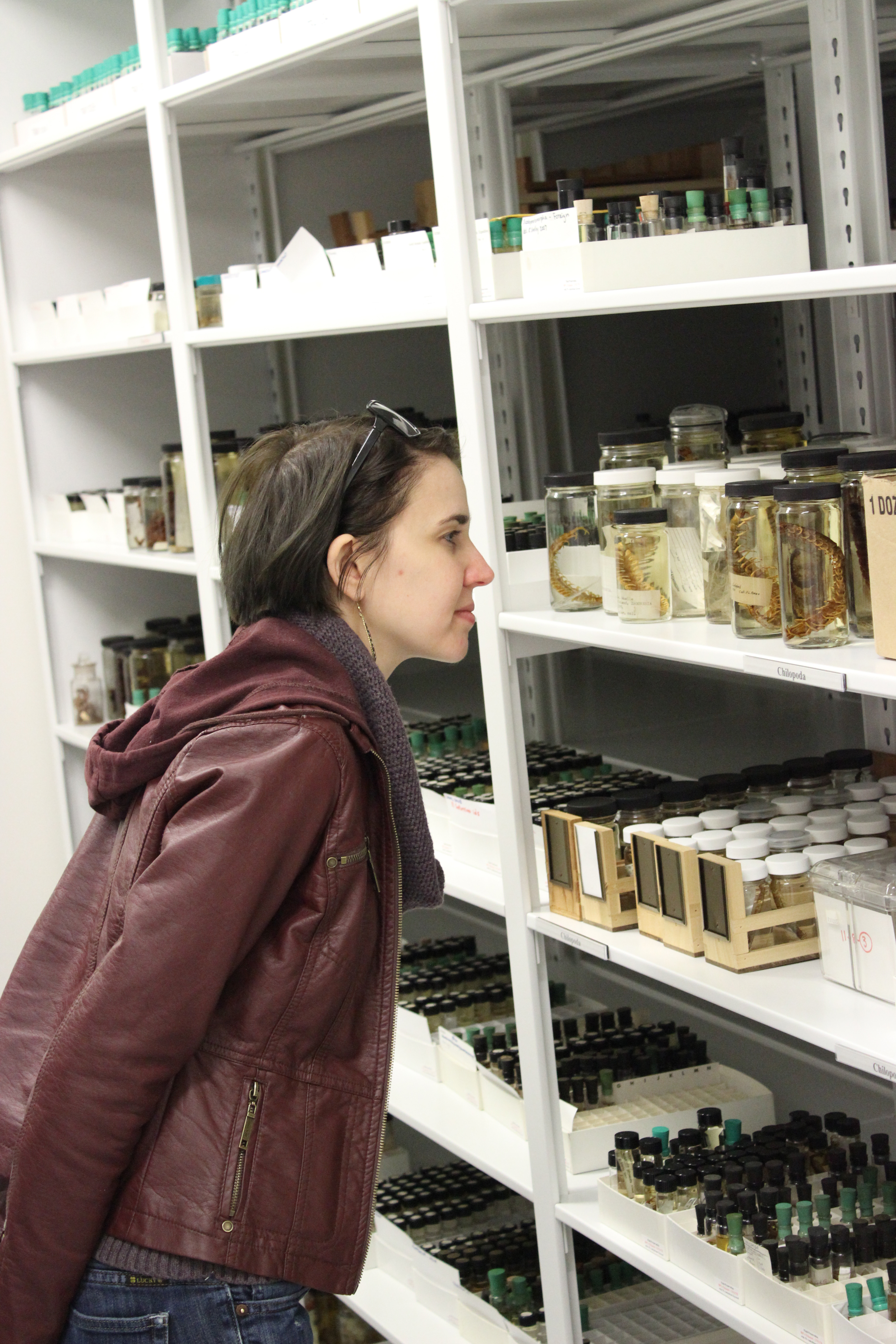 Following an opportunity to tour collections at Yale’s West Campus, including library and archival material, the day concluded with several presentations concentrated on funding and a final writing session during which Michelle Koo facilitated participant discussion to round out the proposed best practices document.
Following an opportunity to tour collections at Yale’s West Campus, including library and archival material, the day concluded with several presentations concentrated on funding and a final writing session during which Michelle Koo facilitated participant discussion to round out the proposed best practices document.
iDigBio extends appreciation to Yale Peabody Museum for hosting and co-funding this workshop and for providing leadership in the digitization of source materials.







